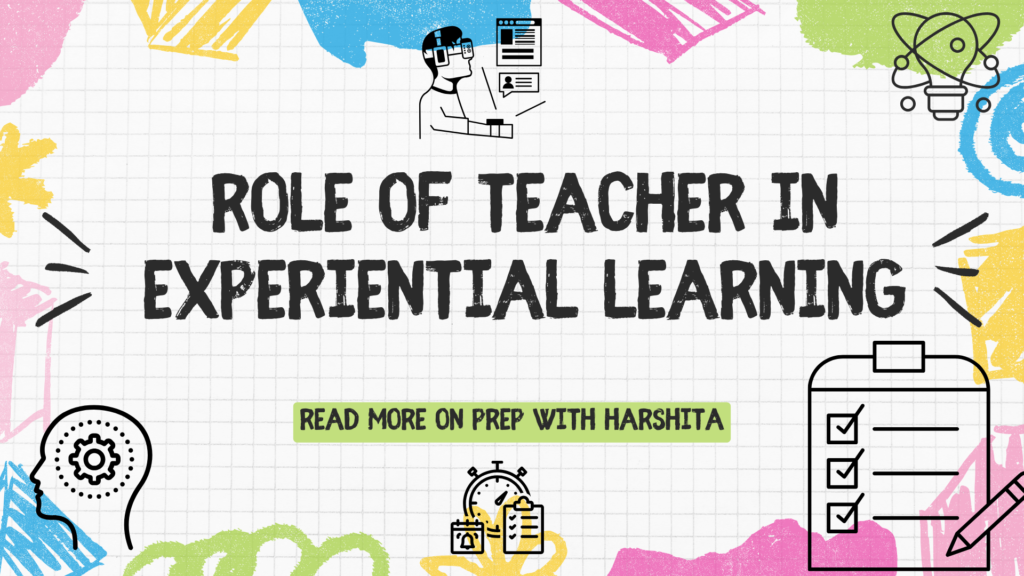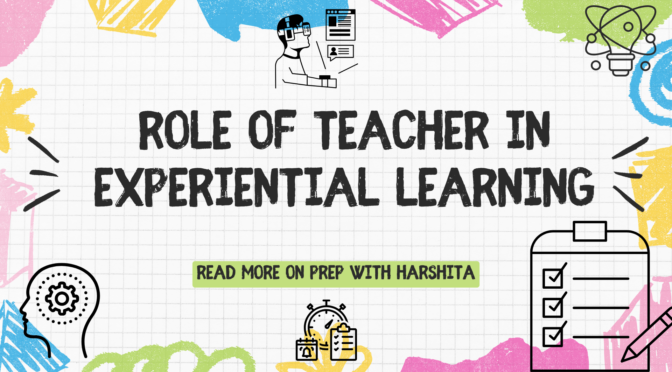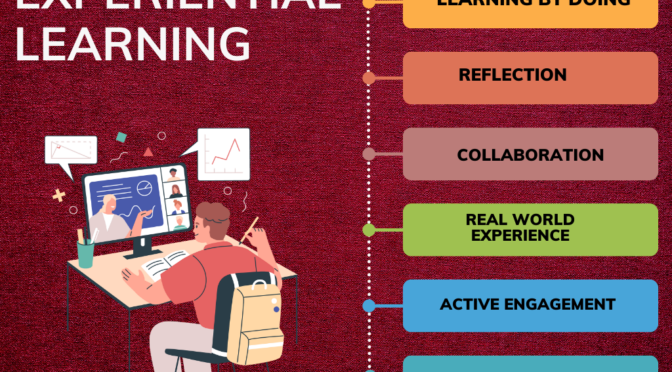Experiential learning is a student-centered approach that emphasizes hands-on, active engagement in the learning process. In this approach, both teachers and students play distinct roles that contribute to the effectiveness of the learning experience.
Here’s how teachers engage in experiential learning:
Teacher’s Role:
a. Facilitator: The teacher serves as a facilitator or guide rather than a lecturer. They create opportunities for students to engage directly with the subject matter through activities, experiments, or real-world experiences.
b. Designing Learning Experiences: Teachers design and organize learning experiences that promote active participation, critical thinking, and reflection. They plan activities that allow students to explore concepts, solve problems, and draw conclusions through firsthand experiences.
c. Providing Structure and Support: While encouraging student autonomy and initiative, teachers also provide structure and support to ensure that the learning activities align with educational objectives. They offer guidance, feedback, and resources to help students navigate the learning process effectively.
Also Visit: Prep with Harshita
d. Encouraging Reflection: Teachers facilitate reflection activities that enable students to analyze their experiences, identify key insights, and connect new knowledge with prior learning. They encourage students to think deeply about their experiences and articulate their thoughts and feelings.
e. Assessment and Evaluation: Teachers assess student learning through various means, including observations, discussions, presentations, projects, and portfolios. They evaluate not only the acquisition of knowledge and skills but also the application of learning in practical contexts.
Also, Read: Features of Experiential Learning



